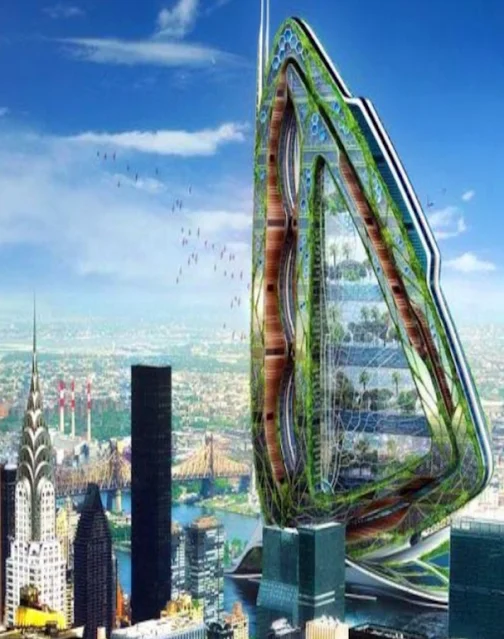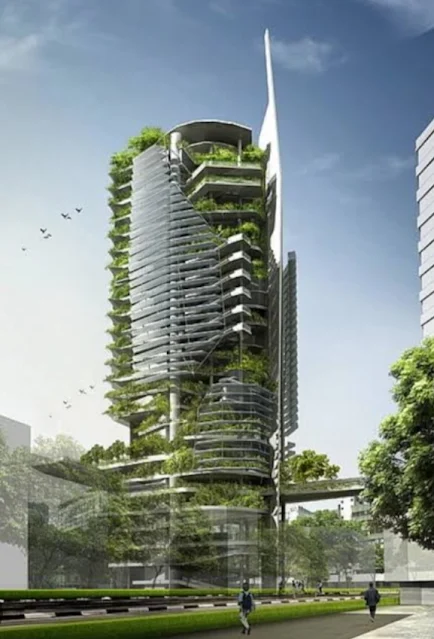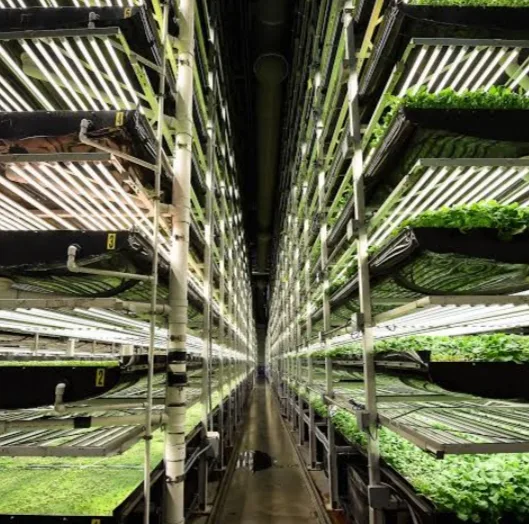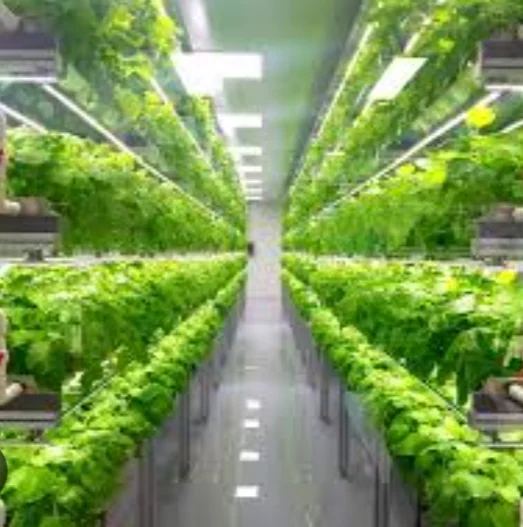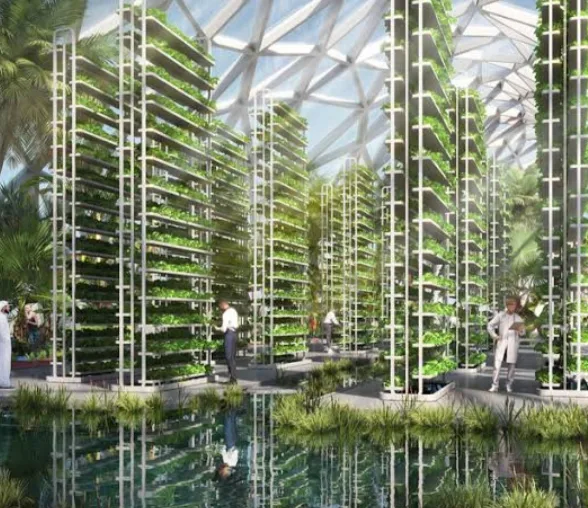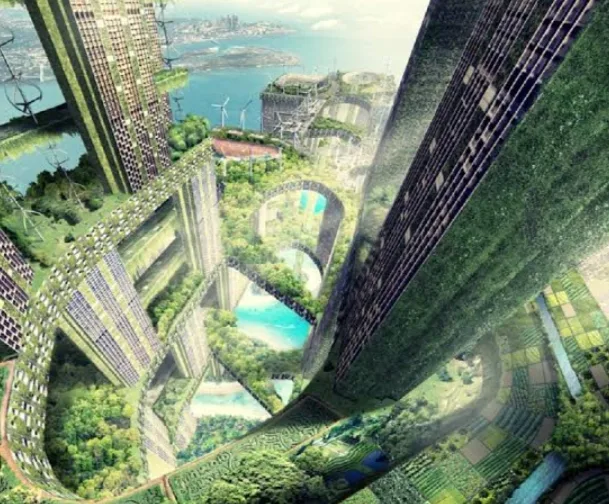Introduction Dubai's Modern Agriculture
Dubai's modern agriculture is a testament to the city's commitment to sustainable development and food security. In a region known for its arid climate and limited arable land,
Dubai's Modern Agriculture: A Table Overview
Dubai's modern agriculture sector is a remarkable example of innovation and adaptation in a challenging environment. Here's a table outlining some of its key features:
| Feature | Dubai's Modern Agriculture |
|---|---|
| Hydroponics and Aeroponics | Widely used to grow crops in controlled environments with minimal water usage. |
| Vertical Farming | Utilizing multi-tiered systems to maximize growing space in limited areas. |
| Controlled-Environment Agriculture (CEA) | Precisely controlling factors like temperature, humidity, and lighting to optimize plant growth. |
| Desalination | Using desalination plants to provide fresh water for agriculture. |
| Innovation and Technology | Adopting advanced technologies like precision agriculture, automation, and biotechnology. |
| Sustainability Focus | Prioritizing sustainable practices, such as organic farming and water conservation. |
| Imports and Exports | Importing certain agricultural products while exporting locally grown produce. |
| Government Support | Receiving government support and incentives to promote agricultural development. |
| Research and Development | Investing in research and development to explore new agricultural techniques. |
| Urban Farming | Encouraging urban agriculture initiatives to produce food locally. |
Dubai's modern agriculture sector demonstrates the potential for sustainable and productive agriculture in arid environments.
Dubai has embraced innovative agricultural practices to overcome these challenges. The city has invested heavily in vertical farming, hydroponics, and controlled-environment agriculture to maximize crop yields while minimizing water usage. This forward-thinking approach not only addresses local food needs but also positions Dubai as a global leader in the adoption of cutting-edge agricultural technologies.
One notable aspect of Dubai's modern agriculture is the use of vertical farms, where crops are cultivated in stacked layers within controlled environments. This method optimizes space and allows for year-round production, unaffected by external weather conditions. Hydroponics, another key component, involves growing plants without soil, using nutrient-rich water solutions. This technique conserves water resources compared to traditional farming methods, a crucial consideration in a region where water scarcity is a significant concern.
Dubai's commitment to sustainable agriculture extends beyond technology adoption. The city has implemented policies to promote local food production and reduce dependency on imports. Initiatives like rooftop gardens, community farming projects, and educational programs contribute to a more resilient and self-sufficient food ecosystem. Dubai's modern agriculture not only addresses immediate food needs but also sets a precedent for other urban centers grappling with the challenges of feeding growing populations in a resource-constrained world.
Dubai's Vertical farms
Dubai's embrace of vertical farming represents a pioneering shift in agricultural practices, particularly in the face of challenging environmental conditions. Vertical farms are innovative structures where crops are cultivated in stacked layers, often in controlled environments that optimize factors such as light, temperature, and humidity. In a city where arable land is scarce and the climate is arid, vertical farming offers a sustainable solution by maximizing space and resource efficiency.
One of the key advantages of vertical farming in Dubai is its ability to operate independently of external weather conditions. By providing a controlled environment, these farms ensure a consistent and reliable crop production throughout the year. This is crucial in a region where extreme temperatures and water scarcity pose significant challenges to traditional agriculture. Additionally, vertical farming enables the cultivation of a wide variety of crops in a relatively small footprint, contributing to diversification and local food resilience.
Dubai's investment in vertical farming aligns with its broader commitment to sustainability. These farms use advanced technologies such as hydroponics and aeroponics, allowing crops to grow without soil and with minimal water consumption. The integration of smart systems further enhances efficiency, enabling precise control over factors like irrigation and nutrient delivery. Through vertical farming, Dubai not only addresses its own food security concerns but also showcases a model for sustainable urban agriculture that can inspire other cities worldwide facing similar challenges.
Vertical Farms Projects in Dubai
1. Badia Farms (Established in 2016)
Over the past several years, Badia Farms has grown into a notable vertical farm in Dubai. Commencing operations in 2016, it utilizes hydroponics and controlled-environment agriculture to cultivate a variety of leafy greens and herbs, showcasing a commitment to sustainability.
2. Smart Acres (Founded in 2019)
A recent addition to Dubai's vertical farming scene, Smart Acres has been operational since 2019. Focusing on smart and sustainable agricultural practices, the project employs cutting-edge technologies to contribute to local food production while minimizing ecological impact.
3. Vertical Farming at International Center for Biosaline Agriculture (ICBA) (Integration in 2018)
In recent years, the International Center for Biosaline Agriculture (ICBA) in Dubai has integrated vertical farming into its research initiatives. Starting around 2018, ICBA explores the use of saline water and desert land, aiming to pioneer innovative solutions for sustainable agriculture in arid regions.
4. Pegasus Agriculture Group (Active since 2014)
Pegasus Agriculture has been actively involved in vertical farming projects in Dubai since around 2014. Their approach, blending technology and agriculture, aims to create efficient and productive farming systems, contributing significantly to food security in the region.
5. Desert Control Project (Initiated in 2017)
While not exclusively centered on vertical farming, the Desert Control Project in Dubai gained momentum starting around 2017. It focuses on combatting desertification and enhancing agricultural productivity through innovative techniques such as soil conditioning.
These projects underscore Dubai's ongoing commitment to innovative agricultural practices, with each initiative reflecting the city's response to challenges through sustainable and forward-thinking solutions over the past decade.
Key Aspects For Vertical Farms in Dubai
1. Climate Adaptation: Vertical farms in Dubai are designed to thrive in the city's arid climate, utilizing controlled environments to overcome challenges such as high temperatures and water scarcity.
2. Advanced Technologies: The use of cutting-edge technologies like hydroponics, aeroponics, and precision agriculture techniques ensures optimal resource utilization, promoting sustainable and efficient crop growth.
3. Space Efficiency: Vertical farms maximize space utilization by stacking crops vertically, allowing for higher yields in a smaller footprint. This is crucial in a city where available arable land is limited.
4. Year-round Production: The controlled indoor environments of vertical farms enable year-round production, reducing the reliance on seasonal changes and external weather conditions for crop cultivation.
5. Water Conservation: In a region facing water scarcity, vertical farms in Dubai prioritize water efficiency through closed-loop irrigation systems, capturing and reusing water to minimize waste.
6. Crop Variety: Vertical farming allows for the cultivation of a diverse range of crops, promoting agricultural diversification and enhancing food security by reducing dependency on specific types of produce.
7. Smart Automation: Integration of smart technologies and automation ensures precise control over environmental factors, such as lighting, temperature, and nutrient delivery, optimizing conditions for plant growth.
8. Local Food Resilience: By cultivating crops within the city, vertical farms contribute to local food resilience, reducing dependence on external sources and enhancing Dubai's ability to sustain its population.
9. Educational Initiatives: Many vertical farms in Dubai incorporate educational programs to raise awareness about modern agricultural practices, fostering a deeper understanding of sustainable food production among the community.
10. Global Innovation Hub: Dubai's investment in vertical farming positions the city as a global hub for agricultural innovation, attracting expertise and serving as a model for other regions seeking sustainable solutions to urban agriculture challenges.
Key Aspects For Vertical Farms in Dubai: Climate Adaptation
Vertical farms in Dubai are designed to thrive in the city's arid climate, utilizing controlled environments to overcome challenges such as high temperatures and water scarcity.
This adaptation is essential for ensuring year-round productivity and addressing the unique climatic conditions that can impact traditional farming practices. By creating optimal growing conditions indoors, vertical farms minimize the influence of external weather factors, contributing to the sustainability and resilience of agricultural production in Dubai's challenging climate.
Key Aspects of Vertical Farms in Dubai: Climate Adaptation with Technology Integration
1. Controlled Environments: Vertical farms utilize advanced climate control systems to create optimal growing conditions, mitigating the challenges of Dubai's arid climate.
2. Smart Sensors: Integration of smart sensors enables real-time monitoring of environmental factors, allowing for precise adjustments to ensure ideal conditions for plant growth.
3. Precision Agriculture: The adoption of precision agriculture techniques enhances resource efficiency by optimizing water usage, a crucial consideration in a region facing water scarcity.
4. Hydroponics and Aeroponics: Vertical farms in Dubai employ hydroponic and aeroponic systems, eliminating the need for soil and maximizing water and nutrient delivery directly to the plants' roots.
5. Automation: Smart systems automate key processes such as irrigation, nutrient delivery, and climate control, reducing human intervention and ensuring consistent crop production.
6. Optimized Lighting: Advanced lighting systems, often using LED technology, provide tailored light spectrums to support photosynthesis and maximize energy efficiency.
7. Year-Round Productivity: The integration of technology allows vertical farms to operate consistently throughout the year, decoupling production from external weather conditions.
8. Global Positioning: Dubai's vertical farms, through technology, position themselves as global leaders in innovative urban agriculture practices, influencing similar initiatives worldwide.
These key aspects showcase the synergy of climate adaptation and technology integration in Dubai's vertical farms, emphasizing sustainability, resource efficiency, and resilience in the face of challenging environmental conditions.
Key Aspects For Vertical Farms in Dubai: Advanced Technologies
1. Hydroponics and Aeroponics: Vertical farms in Dubai leverage advanced hydroponic and aeroponic systems, eliminating the need for soil and optimizing nutrient delivery to plants.
2. Smart Automation: Integration of smart automation systems allows precise control over environmental factors such as lighting, temperature, humidity, irrigation, and nutrient distribution.
3. Precision Farming: The adoption of precision agriculture technologies enhances efficiency by utilizing data-driven insights for optimized resource management and crop cultivation.
4. LED Lighting: Advanced LED lighting systems are employed to provide tailored light spectrums, promoting photosynthesis and maximizing energy efficiency in the absence of natural sunlight.
5. Sensors and Monitoring: Smart sensors monitor real-time conditions, providing continuous feedback for adjustments, ensuring an optimal environment for plant growth.
6. Climate Control Systems: Vertical farms incorporate sophisticated climate control systems to create and maintain ideal temperature and humidity levels, independent of external weather conditions.
7. Vertical Growing Structures: Innovative vertical farming structures optimize space utilization, allowing for increased crop yields within limited urban areas.
8. Data Analytics: The integration of data analytics enables continuous improvement through the analysis of production metrics, resource usage, and overall operational efficiency.
These advanced technologies collectively contribute to the success of vertical farming in Dubai, enabling sustainable and efficient agricultural practices in the face of challenging environmental factors.
Key Aspects For Vertical Farms in Dubai: Space Efficiency
1. Vertical Growing Structures: Innovative vertical farming structures optimize land use by stacking crops vertically, allowing for increased production within limited urban spaces.
2. Stacked Growing Systems: Utilizing stacked growing systems maximizes the use of available space, creating a more efficient and productive footprint for cultivation.
3. High-Density Planting: Vertical farms in Dubai implement high-density planting methods, ensuring that each unit of vertical space is utilized to its full potential for crop cultivation.
4. Compact Footprint: The design of vertical farms prioritizes a compact footprint, making them suitable for urban environments where space is at a premium.
5. Modular Design: Many vertical farms use a modular design, allowing for scalability and flexibility in adapting to different spatial constraints and agricultural needs.
6. Vertical Aeroponics Towers: Specific vertical farming systems, such as aeroponic towers, enable efficient use of vertical space by suspending plants in a nutrient-rich mist, optimizing spatial utilization.
7. Hydroponic Systems: By employing hydroponic systems that don't rely on soil, vertical farms eliminate the need for extensive horizontal space, further enhancing overall space efficiency.
8. Year-Round Production: The space-efficient design of vertical farms allows for consistent and year-round production, reducing the need for vast expanses of land for seasonal cultivation.
These aspects underscore how vertical farms in Dubai efficiently utilize space, making them well-suited for urban environments and contributing to sustainable and resilient agricultural practices.
Key Aspects For Vertical Farms in Dubai: Year-round Production
1. Controlled Environments: Vertical farms in Dubai use controlled environments, allowing for consistent temperature, humidity, and lighting conditions throughout the year, independent of external weather fluctuations.
2. Indoor Farming Systems: The adoption of indoor farming systems ensures that crops are shielded from the effects of seasonal changes, enabling year-round cultivation.
3. Artificial Lighting: Advanced lighting systems, including LED technology, provide artificial light spectrums to support photosynthesis, allowing crops to thrive even during periods of limited natural sunlight.
4. Climate-Independent Cultivation: Vertical farms decouple production from external climate conditions, ensuring a continuous and reliable supply of crops irrespective of Dubai's arid climate challenges.
5. Hydroponic and Aeroponic Systems: These advanced cultivation methods, which are often employed in vertical farms, facilitate precise control over nutrient delivery, further optimizing conditions for year-round growth.
6. Automated Systems: Smart automation systems regulate irrigation, nutrient distribution, and other essential processes, contributing to the consistent and efficient year-round operation of vertical farms.
7. Crop Rotation Strategies: Vertical farms implement effective crop rotation strategies within their controlled environments, preventing soil depletion and contributing to sustained, year-round production.
8. Strategic Planting Schedules: Vertical farms utilize strategic planting schedules to maximize space and ensure a continuous harvest cycle, enhancing overall productivity throughout the year.
These aspects collectively highlight how vertical farms in Dubai prioritize year-round production, ensuring a steady and reliable supply of fresh produce irrespective of external seasonal variations.
Key Aspects For Vertical Farms in Dubai: Water Conservation
1. Hydroponic Systems: Vertical farms in Dubai often employ hydroponic systems, which use a nutrient-rich water solution to cultivate plants without the need for soil. This method is inherently water-efficient.
2. Closed-Loop Irrigation: Many vertical farms utilize closed-loop irrigation systems, capturing and recycling water within the system. This approach minimizes water wastage and ensures efficient use of this precious resource.
3. Aeroponics: Some vertical farms incorporate aeroponic systems, which involve growing plants in an air or mist environment. This method uses significantly less water compared to traditional soil-based cultivation.
4. Precision Irrigation: Advanced technologies enable precise control over irrigation, delivering water directly to the plant roots when needed. This reduces excess water usage and optimizes resource efficiency.
5. Water-Efficient Crop Selection: Vertical farms in Dubai often prioritize the cultivation of water-efficient crops, choosing varieties that require minimal water for healthy growth.
6. Smart Sensors: Integration of smart sensors monitors soil moisture levels, enabling real-time adjustments to irrigation schedules based on actual plant needs, contributing to water conservation.
7. Drip Irrigation: Vertical farms may implement drip irrigation systems, delivering water directly to the base of plants. This targeted approach minimizes water loss through evaporation and runoff.
8. Water Recycling Practices: Beyond closed-loop systems, some vertical farms in Dubai adopt comprehensive water recycling practices, treating and reusing water to further reduce overall consumption.
These water conservation measures underscore the commitment of vertical farms in Dubai to sustainable and efficient agricultural practices in a region facing water scarcity.
Key Aspects For Vertical Farms in Dubai: Crop Variety
1. Crop Diversity: Vertical farms in Dubai emphasize cultivating a diverse range of crops, including leafy greens, herbs, and other vegetables. This diversity contributes to food security and local resilience.
2. Year-Round Availability: The controlled environments of vertical farms allow for the year-round production of various crops, reducing the dependence on seasonal availability and external sources.
3. Efficient Space Utilization: Vertical farming systems optimize space, enabling the cultivation of multiple crop varieties within a compact footprint, contributing to agricultural diversification.
4. Tailored Growing Conditions: Advanced technologies in vertical farms permit the customization of environmental factors, creating conditions suitable for a wide variety of crops with different growth requirements.
5. Specialty Crops: Some vertical farms in Dubai focus on cultivating specialty crops that might be challenging to grow in traditional outdoor settings, adding uniqueness to the local produce market.
6. Localized Food Production: Growing a variety of crops within the city minimizes the need for long-distance transportation, promoting fresher and locally sourced produce for consumers.
7. Continuous Innovation: Vertical farms in Dubai are often at the forefront of agricultural innovation, experimenting with new crop varieties and introducing novel species to diversify their production.
8. Community Preferences: The selection of crop varieties is sometimes influenced by local consumer preferences, ensuring that vertical farms cater to the tastes and demands of the community.
These aspects highlight how vertical farms in Dubai contribute to crop variety, fostering a resilient and diverse agricultural ecosystem within the urban landscape.
Key Aspects For Vertical Farms in Dubai: Smart Automation
1. Precision Control: Vertical farms leverage smart automation systems to precisely control environmental factors such as lighting, temperature, humidity, and nutrient delivery.
2. Irrigation Management: Automation regulates irrigation schedules, ensuring that crops receive the optimal amount of water needed for healthy growth while minimizing water wastage.
3. Nutrient Distribution: Automated systems monitor and control the distribution of nutrients, providing plants with essential elements at the right times to enhance overall crop health and yield.
4. Monitoring Sensors: Smart sensors continuously monitor various parameters, including soil moisture levels and plant health, enabling real-time adjustments to cultivation conditions.
5. Data-Driven Decision Making: Automation integrates data analytics to make informed decisions, improving overall operational efficiency and contributing to sustainable farming practices.
6. Reduced Labor Dependency: Automated systems reduce the dependency on manual labor, allowing for streamlined operations and ensuring consistent and efficient production.
7. Energy Optimization: Smart automation helps optimize energy usage by adjusting lighting and climate control systems based on real-time data, enhancing resource efficiency.
8. Remote Monitoring: Automation enables remote monitoring and control of vertical farm operations, providing flexibility and accessibility for managing the cultivation environment.
These aspects underscore how smart automation enhances the efficiency, precision, and sustainability of vertical farming practices in Dubai.
Key Aspects For Vertical Farms in Dubai: Local Food Resilience
1. Regional Sustainability: Vertical farms contribute to local food resilience by cultivating crops within the city, reducing dependence on external sources and promoting regional sustainability.
2. Reduced Transportation: Growing food locally minimizes the need for extensive transportation, decreasing the environmental impact and ensuring fresher produce for consumers.
3. Short Supply Chains: Vertical farms create short and efficient supply chains, connecting local producers directly with consumers, enhancing the resilience of the local food system.
4. Rapid Response to Demand: Localized farming allows for quicker response to changes in consumer demand, ensuring a more agile and adaptable food supply system.
5. Diversification of Food Sources: By cultivating a variety of crops locally, vertical farms contribute to the diversification of food sources, enhancing the resilience of the local diet.
6. Climate-Adapted Agriculture: Vertical farms in Dubai adapt to the city's climate challenges, contributing to local food resilience by providing a stable source of fresh produce irrespective of external weather conditions.
7. Community Engagement: Vertical farms often engage with the local community, building trust and partnerships that strengthen the resilience of the entire food ecosystem.
8. Educational Initiatives: Some vertical farms integrate educational programs to raise awareness about local food production, fostering a sense of community responsibility and resilience.
These aspects highlight how vertical farms in Dubai play a crucial role in building local food resilience, creating a more robust and sustainable food supply system within the city.
Key Aspects For Vertical Farms in Dubai: Educational Initiatives
1. Public Awareness: Vertical farms often engage in educational initiatives to increase public awareness about modern agricultural practices, sustainable food production, and the importance of local farming.
2. School Programs: Some vertical farms collaborate with schools to develop educational programs, exposing students to urban agriculture and fostering an understanding of where food comes from.
3. Workshops and Tours: Educational workshops and farm tours provide the community with firsthand experiences, promoting a deeper understanding of vertical farming technologies and practices.
4. Sustainable Practices: Vertical farms use educational initiatives to highlight their commitment to sustainability, educating the public on resource-efficient farming methods and environmental benefits.
5. Community Engagement: Educational programs encourage community engagement, fostering a sense of connection and responsibility toward local food production and environmental stewardship.
6. Technology Literacy: Vertical farms contribute to technology literacy by showcasing the integration of advanced agricultural technologies, inspiring interest in science, technology, engineering, and mathematics (STEM).
7. Agriculture Education Centers: Some vertical farms establish dedicated education centers to serve as hubs for learning about innovative farming methods, sustainability, and urban agriculture.
8. Collaboration with Universities: Collaborating with universities allows vertical farms to contribute to agricultural research and education, promoting knowledge exchange and innovation in the field.
These aspects highlight how educational initiatives by vertical farms in Dubai play a vital role in promoting community awareness, sustainability, and fostering a deeper connection between the public and local food production.
Key Aspects For Vertical Farms in Dubai: Global Innovation
1. Technological Advancements: Vertical farms in Dubai drive global innovation by adopting and showcasing cutting-edge agricultural technologies, influencing advancements in urban farming practices worldwide.
2. Research Collaboration: Collaborations with international research institutions and agricultural organizations contribute to the global knowledge pool, fostering innovation and best practices in vertical farming.
3. Sustainable Solutions: Dubai's vertical farms pioneer sustainable solutions for urban agriculture, setting an example for other cities globally and inspiring the adoption of environmentally friendly farming practices.
4. Knowledge Sharing: Vertical farms in Dubai actively participate in knowledge-sharing initiatives, disseminating insights and lessons learned to contribute to the global discourse on sustainable food production.
5. Influence on Industry Standards: The innovative approaches taken by Dubai's vertical farms influence the development of industry standards, encouraging the global adoption of efficient and sustainable farming methods.
6. Global Partnerships: Establishing partnerships with international entities and agricultural experts facilitates the exchange of ideas, technologies, and methodologies, fostering a global network of innovation in vertical farming.
7. Pilot Projects: Dubai's vertical farms serve as successful pilot projects, offering valuable data and experiences that can be applied globally to enhance the efficiency and productivity of urban agriculture.
8. Showcase for International Collaboration: Dubai positions itself as a hub for international collaboration in agricultural innovation, welcoming global partnerships and contributing to the evolution of urban farming practices on a global scale.
These aspects highlight how vertical farms in Dubai contribute to global innovation in urban agriculture, influencing practices, and fostering collaboration to address the challenges of sustainable food production worldwide.
The advantage of vertical farming in Dubai
The main advantage of vertical farming is its exceptional space efficiency. By utilizing a vertical stack or layer system, vertical farms maximize the use of available space, making them particularly well-suited for urban environments with limited land. This innovative approach not only addresses the challenge of land scarcity but also offers several additional benefits, including increased crop yields, year-round production, resource efficiency, and the promotion of local food resilience.
Vertical farming emerges as a transformative solution, contributing to sustainable agriculture and providing a reliable source of fresh produce in densely populated urban areas.
Conclusion Vertical Farms in DubaiVertical farms in Dubai stand at the forefront of agricultural innovation, addressing the unique challenges posed by the city's arid climate and rapid urbanization.
These farms showcase a commitment to sustainability, resource efficiency, and local food resilience. By integrating advanced technologies such as hydroponics, aeroponics, and smart automation, Dubai's vertical farms exemplify a harmonious blend of environmental adaptability and cutting-edge farming practices.
The emphasis on space efficiency, year-round production, water conservation, and diversified crop varieties underscores the multifaceted approach these farms take to secure a stable and resilient local food supply. Educational initiatives further contribute to community awareness, fostering a deeper connection between residents and the intricacies of modern urban agriculture.
Dubai's vertical farms not only serve as a model for sustainable food production within the city but also contribute to global innovation in urban farming. Through collaborations, knowledge-sharing, and the influence on industry standards, these farms extend their impact beyond city borders, inspiring advancements in agricultural practices worldwide. As Dubai positions itself as a hub for international collaboration in agricultural innovation, the success of vertical farms reflects a promising future for sustainable urban agriculture in the face of evolving global food challenges.


